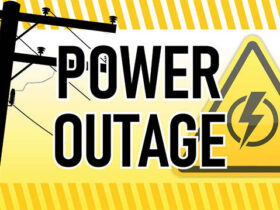8 Mental Health Techniques That Will Make You Feel Better
Mental health can be defined as the emotional, psychological, and social well-being of the person, characterized by the absence of mental illness. It affects our physical, psychological, emotional, and social health. If you are struggling with any form of mental health problem, many techniques can help you feel better in no time. When you think about mental health, what do you think of it? You may think about depression, anxiety, stress, and other mental illnesses. These are all very real problems that many people face. Did you know that there are many things you can do to help yourself feel better? Some even involve just a few minutes daily, while others may require more effort.
In this post, I’ll share some of the most powerful techniques I used and learned from my psychologist and other psychologists to improve your mental health. There are many ways to deal with mental health issues like anxiety, depression, stress, ADHD, and mood disorders. No one-size-fits-all solution exists, but it is possible to find what works best for you, given your unique situation, personality, and circumstances. I’ve been searching for these tools to share my experience with you. As I learn more, I’ll continue to post my discoveries here. I hope they’ll prove useful to you, too!
Article Summary
show
What is mental health?
Mental health refers to our emotional, psychological, and physical well-being. Our mental health plays a huge role in how we function in life, and if we suffer from poor mental health, this can hurt every area of our lives. The key to mental health is feeling good about yourself and being happy with who you are. If you’re unhappy with yourself, it will show, affecting your relationships, job performance, and even your physical health.
What are the symptoms of mental health problems?
Mental health problems are quite common. According to the National Alliance on Mental Illness (NAMI), around 1 in 5 people suffer from a mental health condition. Depression and anxiety are the most common mental health problems, and they are also the most treatable. There are also other less common mental health conditions, such as OCD, bipolar disorder, and ADHD. The NAMI reports that, on average, a person experiences 3.7 mental health problems before they reach adulthood.
Why do we need mental health?
There is no denying that our mental health is incredibly important. If you don’t care for your mind, you won’t be able to take care of your body. Your brain processes information through neurotransmitters and hormones. These chemicals work together to keep your body functioning healthily. When your brain runs smoothly, you’ll have fewer headaches, more energy, and a more positive outlook. Unfortunately, there is a stigma around talking about mental health. But this stigma needs to end.
How do I manage my mental health?
We’ve all been there. We’ve all felt like we’re going crazy and need someone to talk to. But how can you tell if you have a mental illness? Many of us worry that it might be something more serious. This can lead to stress, which can lead to physical ailments such as headaches and insomnia. To avoid that, we recommend checking out Mental Health Awareness Week. It’s a time to learn about the different types of mental health disorders and to raise awareness. It’s also a good time to talk to your family and friends about your feelings. If you’re struggling, they can help you by being supportive and understanding.
What should I do if I have a mental health issue?
Mental health is something that most of us face at some point in our lives. It affects people in different ways, but the effects are never good. Depression, for example, is a common problem and can be debilitating for many people. It’s not just a case of “mood swings,” either. People who are depressed often lose interest in things they used to enjoy, and they may even begin to self-sabotage. They may have trouble sleeping, eat too much, or lose their appetite. Anxiety is another common mental health condition that can be debilitating. Anxious people tend to worry about things that might not be a concern. They often have an irrational fear of certain things, and they may even have panic attacks. Stress is inevitable, and many people have to deal with it at some point. It can lead to heart problems and cause other issues. Stress can also cause insomnia, which makes it difficult to sleep. A person may have a combination of all these conditions, which can be challenging. Some people turn to self-help techniques, while others seek professional help.
Frequently asked questions about mental health.
Q: How can a girl stay mentally healthy while modeling in New York?
A: When you’re in the city, it’s hard always to have time to go out with friends. However, when I’m not working, I try to take advantage of all NYC offers. I like eating good food, shopping, and catching up with my family.
Q: What advice would you give young models?
A: You must be prepared for all types of questions from fans and photographers. Don’t be shy about asking someone if they are an aspiring model. They may be the ones who can help you out.
Q: What’s the best way for models to stay fit?
A: Models should work out regularly. If you are a working model, you must take care of yourself. Exercise helps you keep your body toned and makes you feel better.
Myths about mental health
1. Mental illness is rare.
2. There are no genetic causes of mental illness.
3. Mental illness is a problem with brain chemistry.
4. Mental illness is caused by stress.
Conclusion
First, let me start by saying everyone has mental health issues. If you don’t, you’re probably lying to yourself. It’s just that some people face these issues more than others. Mental health issues are quite common and affect more than 40% of people in the UK. This includes anxiety, depression, low self-esteem, and many more. The good news is that you can take many simple steps to improve your mental health. Mental health affects everybody, so I’ve compiled a list of simple techniques to help you improve your mental health. These techniques include exercise, meditation, and even watching funny movies.















